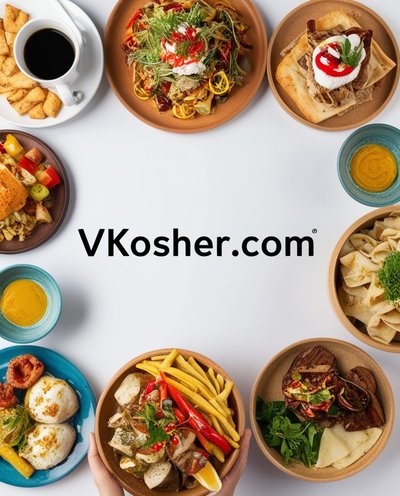Understanding Kosher Food Markets
Kosher food markets represent a unique segment of the global food industry, catering specifically to consumers who observe kosher dietary laws. These laws, rooted in Jewish religious tradition, govern the types of foods that can be eaten and the way they must be prepared. As a result, kosher food markets offer products that meet strict religious standards, ensuring that those who observe these laws can maintain their dietary practices.
The Origin and Significance of Kosher Food
The term "kosher" comes from the Hebrew word "kashér," meaning fit or proper. Kosher dietary laws are detailed in the Torah, particularly in the books of Leviticus and Deuteronomy. These laws include prohibitions against consuming certain animals, such as pork and shellfish, and mandate the separation of meat and dairy products. Additionally, the slaughtering process for meat must be conducted in a specific manner known as "shechita," performed by a trained individual called a "shochet."
Kosher laws also extend to the prohibition of consuming blood, which is why kosher meat undergoes a process of salting and soaking to remove as much blood as possible. These rules are not just dietary preferences but are deeply embedded in religious observance and cultural identity for many Jewish people.
Growth of the Kosher Food Market
The kosher food market has grown significantly in recent years, expanding beyond the Jewish community to attract a broader audience. Consumers who seek out kosher products often do so for reasons such as perceived quality, ethical considerations, or dietary restrictions. For instance, kosher food is often considered to be of higher quality due to the rigorous standards it must meet.
The rise of kosher certification agencies has also contributed to the market's growth. These organizations ensure that products adhere to kosher standards, providing consumers with a level of trust and assurance. As a result, many food producers and manufacturers have sought kosher certification to tap into this expanding market.
Kosher Food Markets: A Diverse Range of Products
Kosher food markets offer a wide variety of products, from fresh produce to packaged goods, all of which are certified kosher. These markets often include dedicated sections for meat, dairy, and pareve (neutral) products to maintain the necessary separation required by kosher laws.
Fresh meat and poultry are central to kosher food markets. These products are not only prepared according to kosher laws but are also subject to additional inspections to ensure quality. Many consumers believe that kosher meat is safer and healthier due to the thorough inspections and the humane methods used in the shechita process.
Dairy products in kosher food markets are also carefully monitored. Only milk from kosher animals, such as cows, goats, and sheep, is permitted, and it must be produced without any contact with non-kosher substances. Kosher food markets offer a wide range of dairy products, including milk, cheese, yogurt, and butter, all of which are produced in compliance with kosher laws.
In addition to meat and dairy, kosher food markets provide a variety of pareve products, which include items that contain neither meat nor dairy. These products, such as fruits, vegetables, grains, and fish, are essential for maintaining a kosher diet, particularly in dishes that require the separation of meat and dairy.
Specialty Kosher Products and International Influence
Kosher food markets also offer a range of specialty products that cater to specific dietary needs within the kosher community. These include gluten-free, vegan, and organic options, all of which must be certified kosher. The demand for these products has increased as more people within the Jewish community seek out foods that align with their dietary preferences and health concerns.
The influence of international cuisines has also made its way into kosher food markets. Products from various ethnic backgrounds, such as Middle Eastern, Mediterranean, and Asian foods, are now available in kosher versions. This expansion reflects the global nature of the Jewish community and its diverse culinary traditions.
Kosher wine is another significant category within kosher food markets. To be considered kosher, wine must be produced by Jewish individuals and meet strict production guidelines. The demand for kosher wine has grown, leading to a wide selection of high-quality options from around the world, including Israel, France, and the United States.
The Role of Technology in Kosher Food Markets
Technology has played a crucial role in the evolution of kosher food markets. The use of advanced food processing techniques has made it easier to produce kosher-certified products on a large scale. For instance, kosher food manufacturers use specialized equipment to ensure that their products do not come into contact with non-kosher substances.
Online shopping has also transformed the kosher food market. Many kosher food markets now offer online ordering and delivery services, making it easier for consumers to access kosher products. This convenience is particularly beneficial for those who live in areas with limited access to kosher markets.
Kosher certification agencies have also embraced technology, using it to streamline the certification process. These agencies now offer online resources where consumers can check the kosher status of products, making it easier for them to make informed choices.
Challenges Facing Kosher Food Markets
Despite the growth and success of kosher food markets, they face several challenges. One of the primary challenges is the cost associated with kosher certification and production. The rigorous standards and inspections required to maintain kosher status often result in higher prices for consumers. This can be a barrier for some individuals who may want to observe kosher dietary laws but find it difficult to afford kosher products.
Another challenge is the limited availability of kosher markets in certain regions. While large cities with significant Jewish populations often have well-established kosher markets, those living in smaller communities or rural areas may struggle to find kosher products. This has led to an increased reliance on online shopping and mail-order services for kosher foods.
The complexity of kosher laws can also be a challenge for food producers and consumers alike. Kosher laws are detailed and specific, and even a small mistake in production or handling can render a product non-kosher. This requires constant vigilance and education for everyone involved in the kosher food supply chain.
The Future of Kosher Food Markets
The future of kosher food markets looks promising, with continued growth and innovation expected in the coming years. As more people around the world become interested in kosher foods for reasons beyond religious observance, the market is likely to expand further.
Sustainability is expected to play a significant role in the future of kosher food markets. With increasing awareness of environmental issues, there is a growing demand for sustainably produced kosher products. This includes organic, non-GMO, and locally sourced options, which are becoming more prevalent in kosher food markets.
The trend towards health-conscious eating is also expected to drive growth in the kosher food market. Many consumers are drawn to kosher products because of the perceived health benefits, and this trend is likely to continue as more people prioritize healthy eating.
Technology will continue to shape the kosher food market as well. Advances in food production, online shopping, and certification processes will make kosher foods more accessible and convenient for consumers. The use of blockchain technology, for instance, could enhance transparency in the kosher food supply chain, giving consumers greater confidence in the products they purchase.
Conclusion
Kosher food markets serve a vital role in the lives of those who observe kosher dietary laws, providing access to products that meet their religious and cultural needs. These markets have grown significantly in recent years, attracting a diverse range of consumers who value the quality, ethics, and health benefits associated with kosher foods.
As the kosher food market continues to evolve, it will face challenges such as maintaining affordability and expanding access to underserved regions. However, with the continued demand for kosher products and the integration of new technologies, the future of kosher food markets appears bright. Whether for religious observance, ethical considerations, or health reasons, kosher food markets offer something for everyone, making them an important and growing segment of the global food industry.




